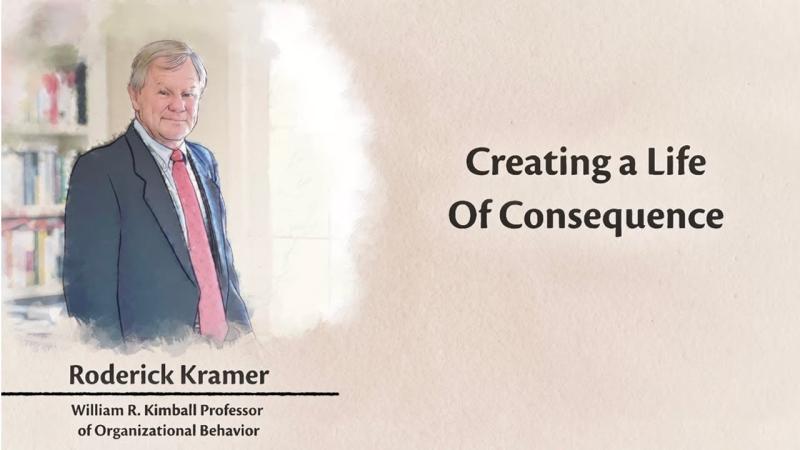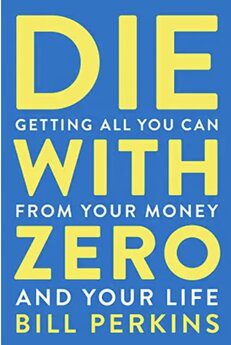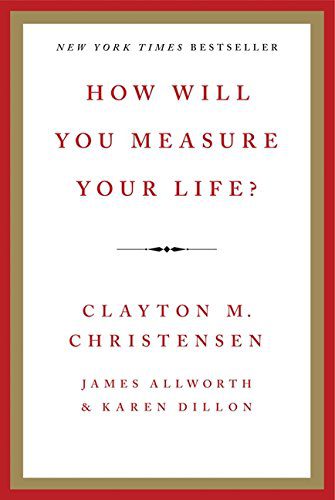When everything is said and done, everyone dies. Our time here on earth is limited, as most of us find out very late. We live our lives like we would get as old as Methuselah; we delay living our lives to the utmost by living in someday isle and we lead an autopilot life in quiet desperation tiptoeing towards our grave. We don’t make waves because we fear the ripple effects and what other people would say or feel. But the reality of life is that we only have this one shot to make an impact and lead a life of adventure and purpose. Every action we take in life has consequences; our input determines our output, cause and effect, reap and sow.
How you live your life daily, through your choices and priorities, has long-lasting consequences on how your life will eventually turn out. At least in advanced economies, the average human life expectancy is around 80 years old. For an 80-year life, one-third of that will be spent sleeping, and another will be used for work, commuting and preparing to work. If we put this in perspective, we have less than 30 years to live a life of consequence. The more one realizes they don’t have much time, the more it becomes crucial to re-order priorities and things that would matter.
“What is success? To laugh often and much; to win the respect of intelligent people and the affection of children; to earn the appreciation of honest critics and endure the betrayal of false friends; to appreciate the beauty; to find the best in others; to leave the world a bit better, whether by a healthy child, a garden patch Or a redeemed social condition; to know even one life has breathed easier because you have lived. This is to have succeeded!” ― Ralph Waldo Emerson
Creating a Life of Consequence course is a program coordinated by Dr. Roderick M. Kramer, the William R. Kimball Professor of Organizational Behavior 1. The course seeks to help participants change their thoughts about their lives and their possible impact on the world. One of the exercises Dr. Roderick assigns to his students is for them to write their obituary as they wished their ideal life looked like. The obituary exercise can help stimulate participant’s creativity and imagination on their future self and the life that future self might live. What do you hope to achieve in your life? What do you wish to leave behind as your legacy? How is it important to live a happy or meaningful life? These are some of the questions that Dr. Kramer’s Creating a Life of Consequence course explores.

By reflecting on our mortality, we can get data points on how we are presently living and the disconnect between the ideal life and the way we are currently living. Living a life of consequence means re-accessing our values and living with a true north. What do what to be remembered for? What is your life’s work as opposed to busy work? What do you presently stand for?
To avoid aimlessness, you have to stand for something. Don’t allow aimlessness to rob you of years of your life. You will ultimately be remembered for—and your body of work will be built upon—the battles you chose to spend your time fighting. Act with urgency and diligence today to define your through line and your battles, then carefully allocate your focus, time, and energy on things that matter to you.” – Die Empty, Todd Henry

Maximize your positive life experiences. 2
Death wakes people up, and the closer it gets, the more awake and aware we become. When the end is near, we suddenly start thinking, What the hell am I doing? Why did I wait this long? Until then, most of us go through life as if we had all the time in the world.
Some of that behavior is rational. It would be foolish to live every day as if it were your last: You wouldn’t bother to work, or study for a test, or visit the dentist. So it makes sense to delay gratification to some extent, because that pays off in the long run. But the sad truth is that too many people delay gratification for too long, or indefinitely. They put off what they want to do until it’s too late, saving money for experiences they will never enjoy. Living as if your life were infinite is the opposite of taking the long view: It’s terribly shortsighted.
Maximizing your fulfillment from experiences—by planning how you will spend your time and money to achieve the biggest peaks you can with the resources you have—is how you maximize your life. By taking charge of these crucial decisions, you take charge of your life.
Life is not a game of Space Invaders—you don’t get points for all the money you rack up in the game—but many people treat it as though it were. They just keep earning and earning, trying to maximize their wealth without giving nearly as much thought to maximizing what they get out of that wealth—including what they can give to their children, their friends, and the larger society now, instead of waiting until they die.

Stand for Something 3
“If you give in to “just this once,” based on a marginal-cost analysis, you’ll regret where you end up. ”
Many of us have convinced ourselves that we are able to break our own personal rules “just this once.” In our minds, we can justify these small choices. None of those things, when they first happen, feels like a life-changing decision. The marginal costs are almost always low. But each of those decisions can roll up into a much bigger picture, turning you into the kind of person you never wanted to be. That instinct to just use the marginal costs hides from us the true cost of our actions.
The first step down that path is taken with a small decision. You justify all the small decisions that lead up to the big one and then you get to the big one and it doesn’t seem so enormous anymore. You don’t realize the road you are on until you look up and see you’ve arrived at a destination you would have once considered unthinkable. it’s easier to hold to your principles 100 percent of the time than it is to hold to them 98 percent of the time. The boundary—your personal moral line—is powerful, because you don’t cross it; if you have justified doing it once, there’s nothing to stop you doing it again.
Decide what you stand for. And then stand for it all the time.
Meditations
Daily Calm with Tamara Levitt – Creativity
Conventional thinking says creativity is intellectual and that new ideas are born from the mind. So to overcome a creative block, we just need to think harder, but often, the mind can’t help us solve the problem because it is getting in the way. Creativity can’t be forced; it is a natural result of certain conditions, ideas, and solutions that arise when the mind is silent and still when the heart is open and confident. And when we are filled with a sense of spaciousness.
Rather than accelerating our thoughts, we create these conditions by quieting them. Once the mind is quiet, the more profound inspiration comes.
“Stillness is where creativity and solutions to problems are found” – Eckhart Tolle.
Daily Jay with Jay Shetty – Expand Your Circle
In life and in our relationships, we often self-limit by narrowing our menu based solely on a number. Generally, when considering who might make a good friend, we think of our peers. People who match our fun factors such as ability, status or age. We assume that we are more likely to bond with them just because we have something clearly in common. That may be true in some ways, but genuine friendship is about more than just superficial similarities. We miss out when we fashion our friend group only from our peer group.
Daily Trip with Jeff Warren – Expanding Awareness
What is here that I am not noticing?
Podcast
This SKILL Is Our #1 Human Superpower | Charles Duhigg X Rich Roll Podcast
All the best in your quest to get better. Don’t Settle: Live with Passion



Comments are closed.